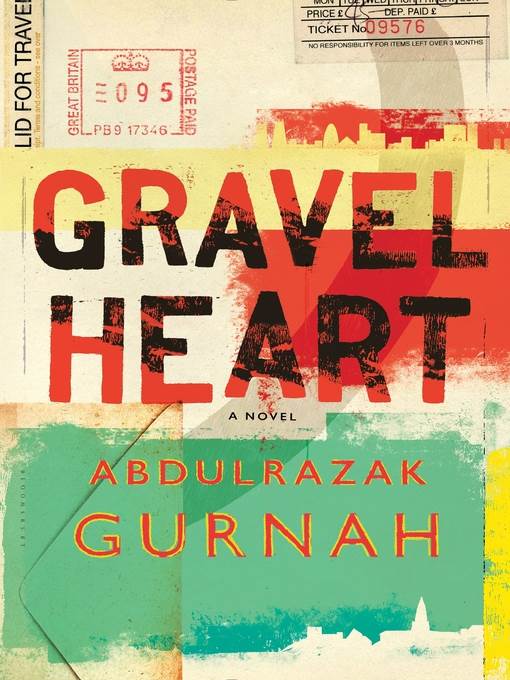
Gravel Heart
کتاب های مرتبط
- اطلاعات
- نقد و بررسی
- دیدگاه کاربران
نقد و بررسی

June 12, 2017
Not until over a hundred pages into this novel does Salim, the narrator whose life we follow and whose thoughts we inhabit, say out loud to anyone in his adopted country where he’s from: Zanzibar, a small island off the east coast of Africa. The conversation in which this information is revealed takes place in Brighton, England, where Salim has moved after three years in London in order to start over. First brought to England after high school by his wealthy ambassador uncle, Salim floundered in business school and so resolved to make the life he wanted, studying literature and living alone even though it meant supporting himself. The first third of the novel reflects the almost entirely interior world of Salim’s upbringing in a tiny house in Zanzibar, carefully observing the adults around him. An observant and dutiful child, Salim is bewildered when his father leaves home and becomes a shadow of his former self, living across town. At age 11, Salim begins bringing his father a basket lunch every day, “like taking food to a prisoner.” Once Salim is in his 30s, the events behind his father’s leaving and his mother’s continued dedication to her husband become clear, the result of a corrupt government official and impossible choices no one should have had to make. Although the book is slow to start, Gurnah (By the Sea) finds a beautiful, quiet, contemplative tone in which to describe and reflect on Salim’s experiences of displacement and discovery.

July 1, 2017
A boy searches for answers, home, his identity, and his destiny after mysterious family circumstances transplant him from his native Zanzibar to London.A veteran novelist who was born in Zanzibar and has long been a professor of literature in England, Gurnah (The Last Gift, 2014, etc.) offers a first-person narrative involving rites of passage for a character whose circumstances are similar to his own. At a pivotal point the narrator says, "I felt like a character at the end of a novel on his way to adventure and fulfilment." Not so fast, for the protagonist has barely made his way through a third of this tale, and fulfillment might not be a realistic expectation. What little he's learned about the world has come from reading novels, a passion he inherited from his father, who has abandoned the household in something resembling disgrace, with the son sent to England to study business under the patronage of his more worldly, glamorous uncle. "Something broke in my father's life a long time ago and I was the debris of [my parents'] disordered lives," says Salim, as he has belatedly introduced himself. The source of this disorder remains a mystery to Salim even after the birth of a sister whose father could not possibly be his. He angers his uncle by rejecting business for the study of literature and finds a measure of independence as he experiences a sexual awakening. Yet his mother's death brings him back to a very different Zanzibar, post-revolutionary and now teeming with tourists. His father, who had been all but silent throughout his son's narration, now feels himself compelled to illuminate the dark secrets that have split his family, and he does so through a series of chapters that function almost like soliloquies, letting Salim know what his mother did and why. Like a lot of similar fiction, this well-crafted novel finds its protagonist suspended between two cultures, a part of each yet apart from both.
COPYRIGHT(2017) Kirkus Reviews, ALL RIGHTS RESERVED.

July 1, 2017
At the core of this novel by Gurnah (By the Sea and Paradise) is a family secret that young Salim must discover in order to be at peace with himself. Every afternoon, his mother asks him to take a basket of food to his father, who lives as an impoverished recluse in a shopkeeper's back room a short distance away and mutters only a word of thanks for the meal. Salim's mother refuses to answer her son's questions about this family situation. Years later, Salim attends university in London, eventually returning home to Zanzibar and visiting his father in the same hovel where he last saw him. Over the course of several days, Salim's father finally confides to his son the dark secret that keeps him estranged from his wife and children. Without sentimentality, the author imparts an affecting story of isolation, the search for identity, and loneliness at home, as well as in the large, hostile capital of a foreign nation where Salim is clearly not wanted. VERDICT Though it would have benefited from some tightening to make the narrative to flow more smoothly, this novel is ultimately compelling, drawing the reader directly into the life of young Salim and his pursuit of answers and understanding. [See Prepub Alert, 2/13/17.]--Lisa Rohrbaugh, Leetonia Community P.L., OH
Copyright 2017 Library Journal, LLC Used with permission.

























دیدگاه کاربران